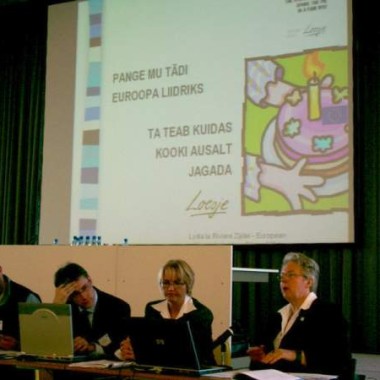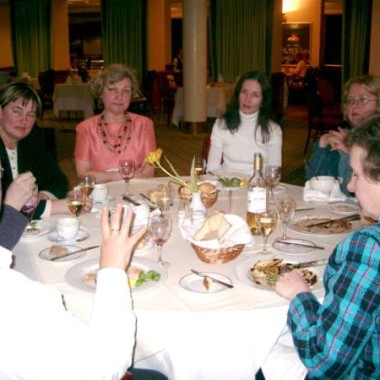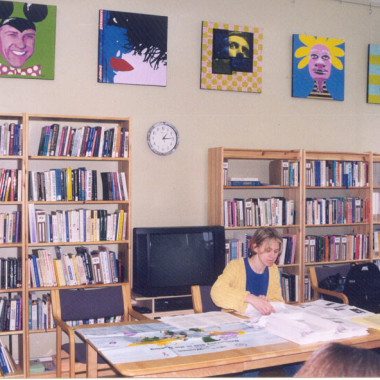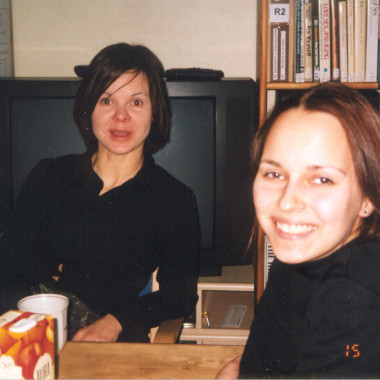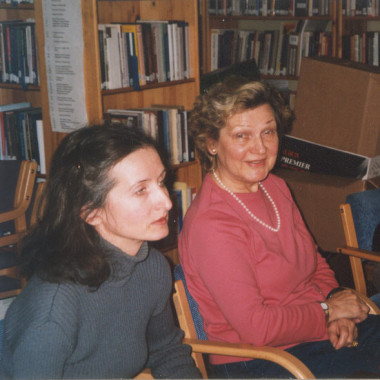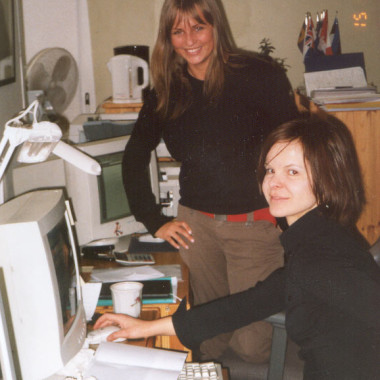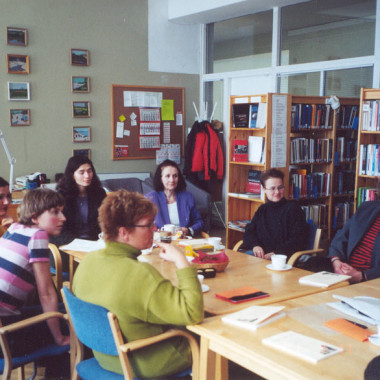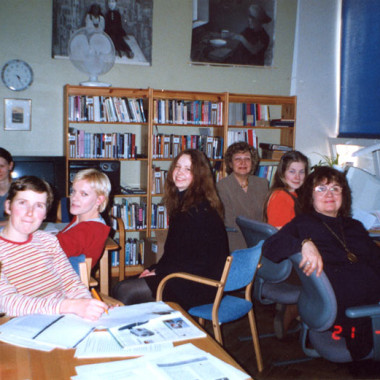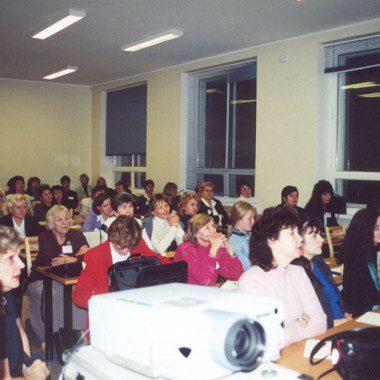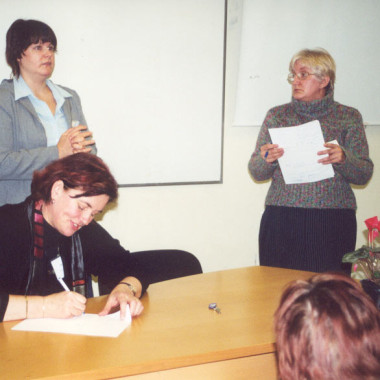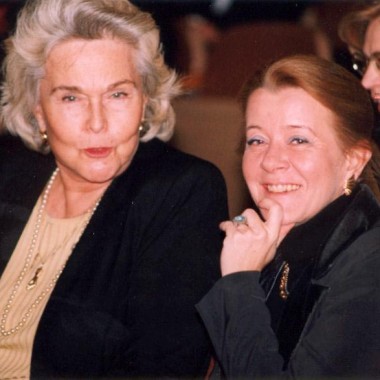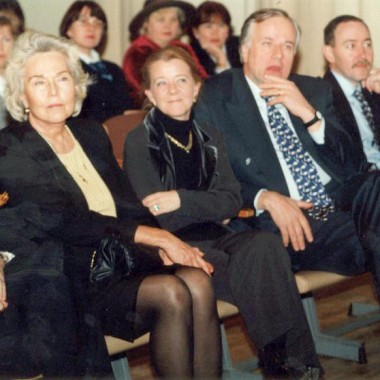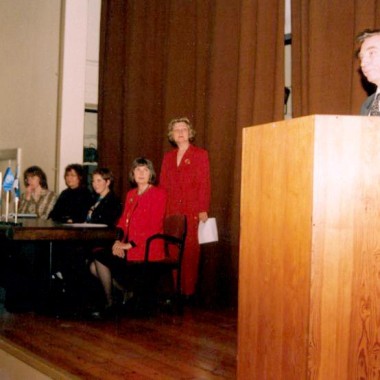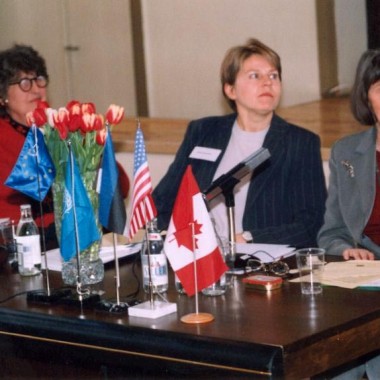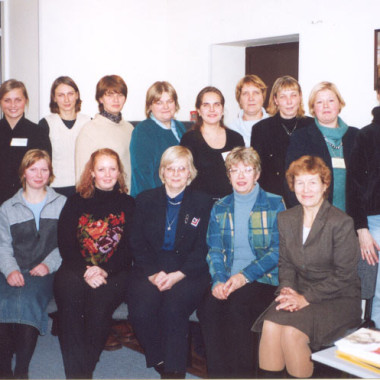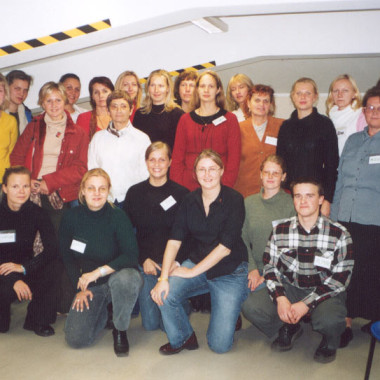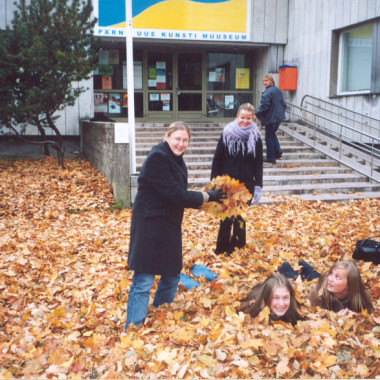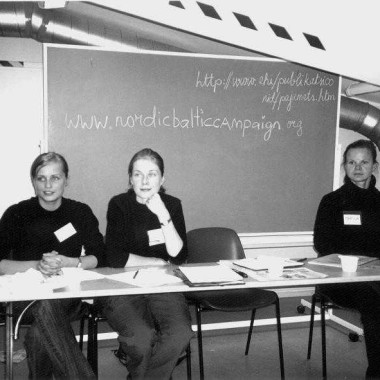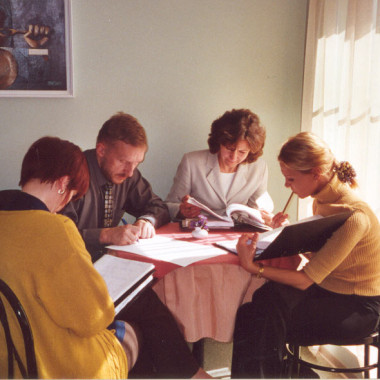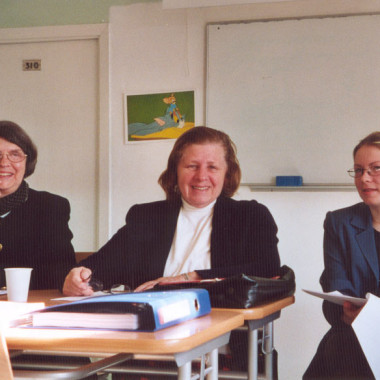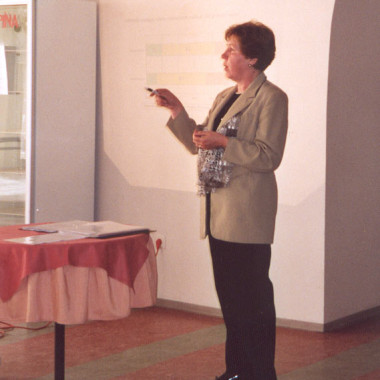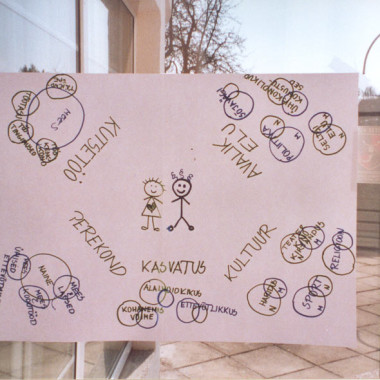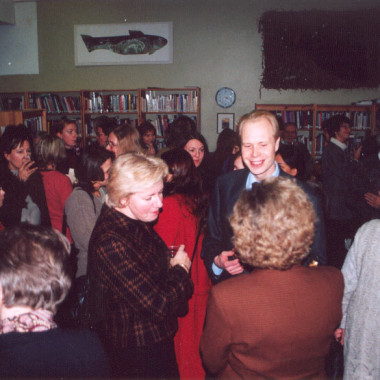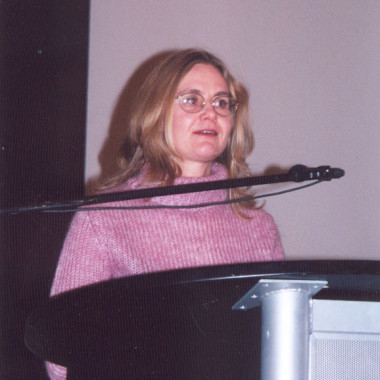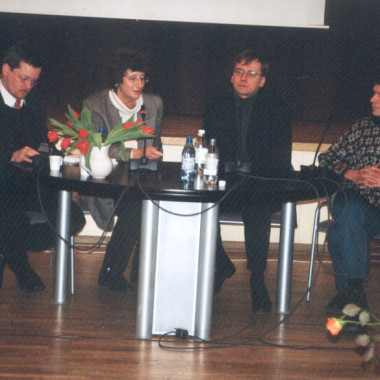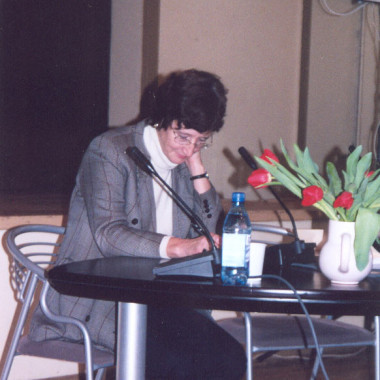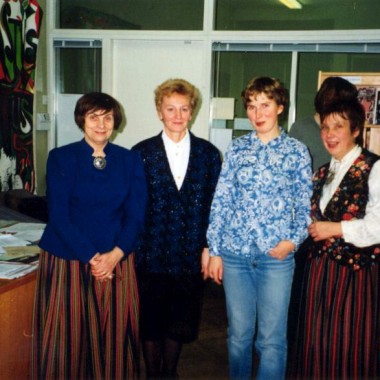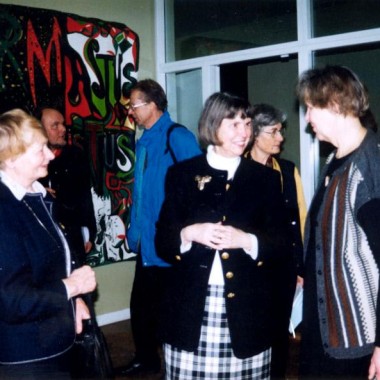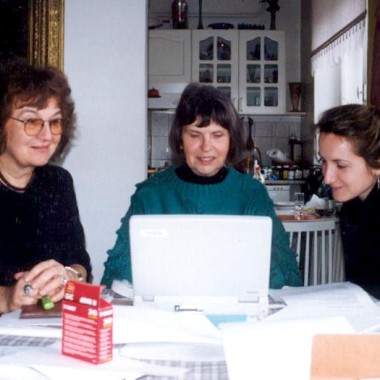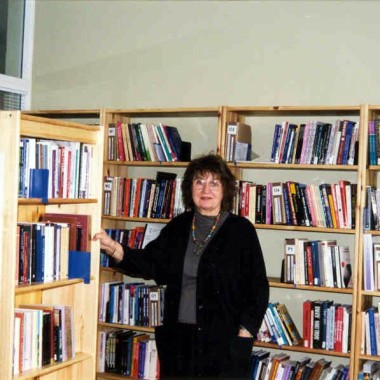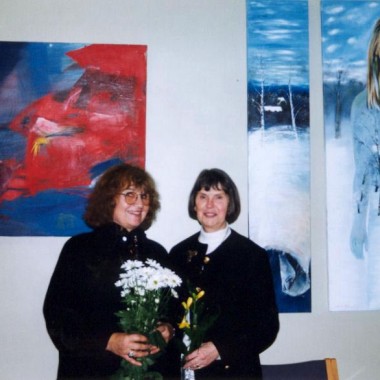The founding

November 27th 1997.
ENUT was registered as a non-governmental organization in April, 1997. The driving force behind the founding of the Centre was the Estonian-Canadian Eda Sepp and American-Norwegian Suzanne Lie, Professor at the University of Oslo. They worked together with interested people, mostly from Tallinn Pedagogical University (Tallinn University since 2005) and Tartu University, as well as officials from the Ministry of Social Affairs defining the needs of Estonian women, establishing the goals and by-laws of the Centre and having a Board of Directors elected.
Eda Sepp’s efforts resulted in the Government of the Province of Ontario contributing 15,000 Canadian dollars and the Estonian Relief Committee in Canada gaving 5,000 dollars towards the purchase of a core collection of 2500 books. The unofficial opening of the library containing these books took place on November 27, 1997; it included the exhibit “Mothers and Daughters” by Estonian women artists Concordia Klar, Maria Kristiina Ulas, Malle Leis, Sandra Jõgeva, Anu Põder, Alice Kask, Evi Tihemets, Epp Viires, Vive Tolli, Tuuliki Tolli.
The many supporters and contributors who helped to build ENUT included the European Union PHARE Macro Democracy Program; Province of Ontario, Canada; the Estonian Relief Committee in Canada; Tallinn University; Open Estonia Foundation; Norwegian, Swedish, Finnish, Netherlands, Canadian, British, and US embassies in Estonia; UN Development Program; Nordic Council of Ministers; Norwegian Ministry of Foreign Affairs (Program of Cooperation with Central and Eastern Europe); University of Oslo, Norway; American Women’s Club of Oslo.
Since the beginning, ENUT has been housed at Tallinn University (formerly Tallinn Pedagogical University) and the contractual relationship has been mutually beneficial. ENUT’s library has served the faculty and students, as well as the community at large, and the university has made available its rooms for ENUT’s events. The university’s press has collaborated with ENUT in the publication of the book “Carrying Linda’s Stones: An Anthology of Estonian Women’s Stories”, and of the gender studies journal “Ariadne’s Clew”.
Starting to operate
Application for a grant was submitted on October 31, 1997 to the European Union PHARE Macro Democracy Programme and after certain revisions, it was approved and the contract was signed on July 17, 1988. The grant ensured the Centre’s operation for two years.
Selve Ringmaa was hired as the Administrative Director of ENUT, Suzanne Lie served as the Academic Director who trained the staff which was hired. In addition to Suzanne Lie and Eda Sepp the first Board of Directors included academicians Voldemar Kolga and Tiina Aunin, sociologist Anu Laas at Tartu University, Ülle-Marike Papp and Reet Laja at the Social Affairs Ministry, and Marika Tammeaid at the Nordic Council of Ministers office in Tallinn, Kaire Ainjärv at the Ministry of Education.
Suzanane Lie served as ENUT’s Academic Director 1997-2000. Selve Ringmaa was the Administrative Director 1998-2003 and then Ilvi Jõe-Cannon volunteered to fill the office until 2006, having been a volunteer at ENUT since 1998. Since 2006, the Centre has not had a director. It has been administered by the Board of Directors and project leaders comprise the staff, as needed.
ENUT was opened officially on February 4, 1999 with the conference “Estonian Women in Politics” and the first issue of ENUT News appeared. These were part of the activities in the PHARE grant project. The next activity was the seminar “Estonian Women and Local Politics: Strategies and Tactics” held in May.
Activities
Over the years, ENUT has organized roundtables, seminars, lectures on gender related topics delivered by specialists in Europe and North America.
ENUT’s largest projects have included:
1) PHARE Democracy Programme (2-year project funded by EU), which launched the gender studies journal Ariadne lõng (“Ariadne’s Clew”), organized conferences, seminars, and roundtables.
2) IT equipment purchase and maintenance (UNDP), which enabled the establishment of a women’s organizations information centres network in the Baltic States (funded by the Nordic Council of Ministers). Subsequently, the network was expanded to the Nordic countries with funding by the Norwegian Foreign Affairs Ministry, which also redesigned ENUT’s website and provided for its maintenance.
3) To date, seven volumes of Ariadne lõng have been published with funding from the Canadian Foreign Ministry, the Netherlands Embassy, Open Estonia Foundation and Estonia’s Cultural Endowment Fund.
4) ENUT NEWS, issued in Estonian and English, has been issued irregularly since its initial funding under the PHARE Democracy Programme in 1998. Its irregularity is due to funding possibilities. Open Estonia Foundation, the Norwegian Foreign Affairs Ministry, European Union’s EQUAL have been main sources and the latest issue (2008) was funded by the Nordic Council of Ministers in the framework of a project .
5) Gender Studies Minor was designed (Mama Cash funding) and added to Tallinn University curriculum in 2003. Open Estonia Foundation funded the implementation.
6) Also in 2003, ENUT conducted, with the support of the Nordic Council of Ministers and the Norwegian Embassy in Tallinn, the first training seminar on domestic violence for the Estonian police force. This topic was incorporated into the training of police thereafter.
7) Between 2002-2009, ENUT was active with trafficking and prostitution issues, with numerous projects being funded by US Department of State, the Nordic Council of Ministers, European Women’s Lobby (EWL) and EQUAL. Among ENUT’s publications on the topic are the Estonian and Russian language booklet on the demand for prostitution and the Estonian translation of “The Links between Prostitution and Sex Trafficking”. Public awareness about prostitution and trafficking has been raised significantly in Estonia as a consequence. In addition, ENUT was the lead partner in the European Commission 2-year (2007-2009) project “NGO and Governmental Cooperation Across the South Caucasus to Develop a Joint Response to Trafficking in Women and Children” that involved partners in Georgia, Armenia and Azerbaijan.
8) Carrying Linda’s Stones: An Anthology of Estonian Women’s Life Stories, Tallinn University Press, 600 pp. The book, published in 2006 and reprinted in 2007and 2009, is a major achievement which is the result of voluntary work by the editors and contributions from private sources. The book has been considered the best English language text on Estonia’s recent history. Proceeds from the book’s sale go to ENUT.
9) Starting in 2008, ENUT has focused on gender issues in the area of education. Open Estonia Foundation funded a project to advance gender mainstreaming in Estonia’s educational system. Also, the Foundation supported a project that looked at gender sensitivity in Estonia’s kindergartens.
10) In 2009 KÜSK funded a project which emphasized the need for a gender balanced society in order for it to be sustainable. Same year, the Nordic Council of Ministers funded a project on gender sensitive budgeting in local governments.
11) Climate change is a new field analysed from the gender perspective and ENUT had a Nordic Council of Ministers funded a project addressing the Baltic Sea region.
For more detailed information about ENUT’s projects, click here.
Other activities
In the course of carrying out projects, ENUT also helped to organize the Estonian Women’s Associations Roundtable in 2003, serving as its Secretariat for two years; lobbied for gender equality legislation (law adopted by Riigikogu April 2004); and influenced media to become more gender sensitive.
In October 2007, ENUT observed its 10th anniversary with an international 2-day conference, “On the road to a gender balanced society – 10 years” which was supported by the Nordic Council of Ministers, the Norwegian Embassy, the Finnish Embassy, Tallinn City Government, Tallinn University, Hotel Schlössle, and Cankaya University.

